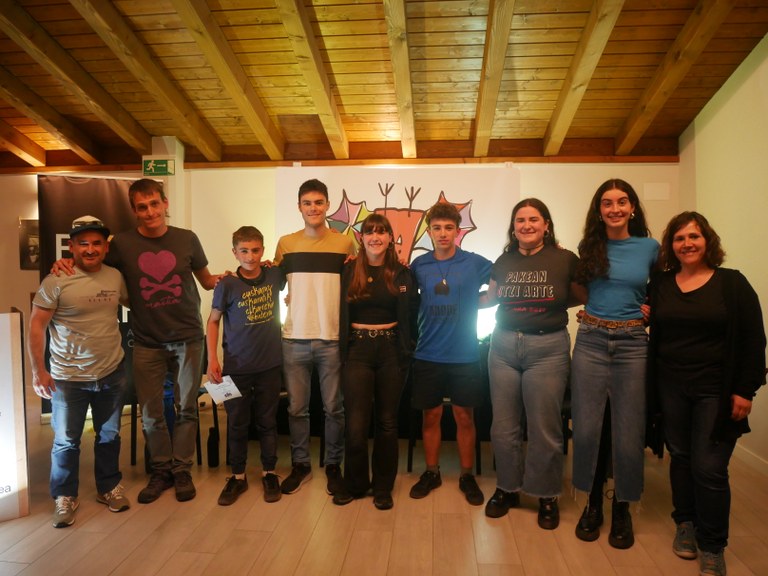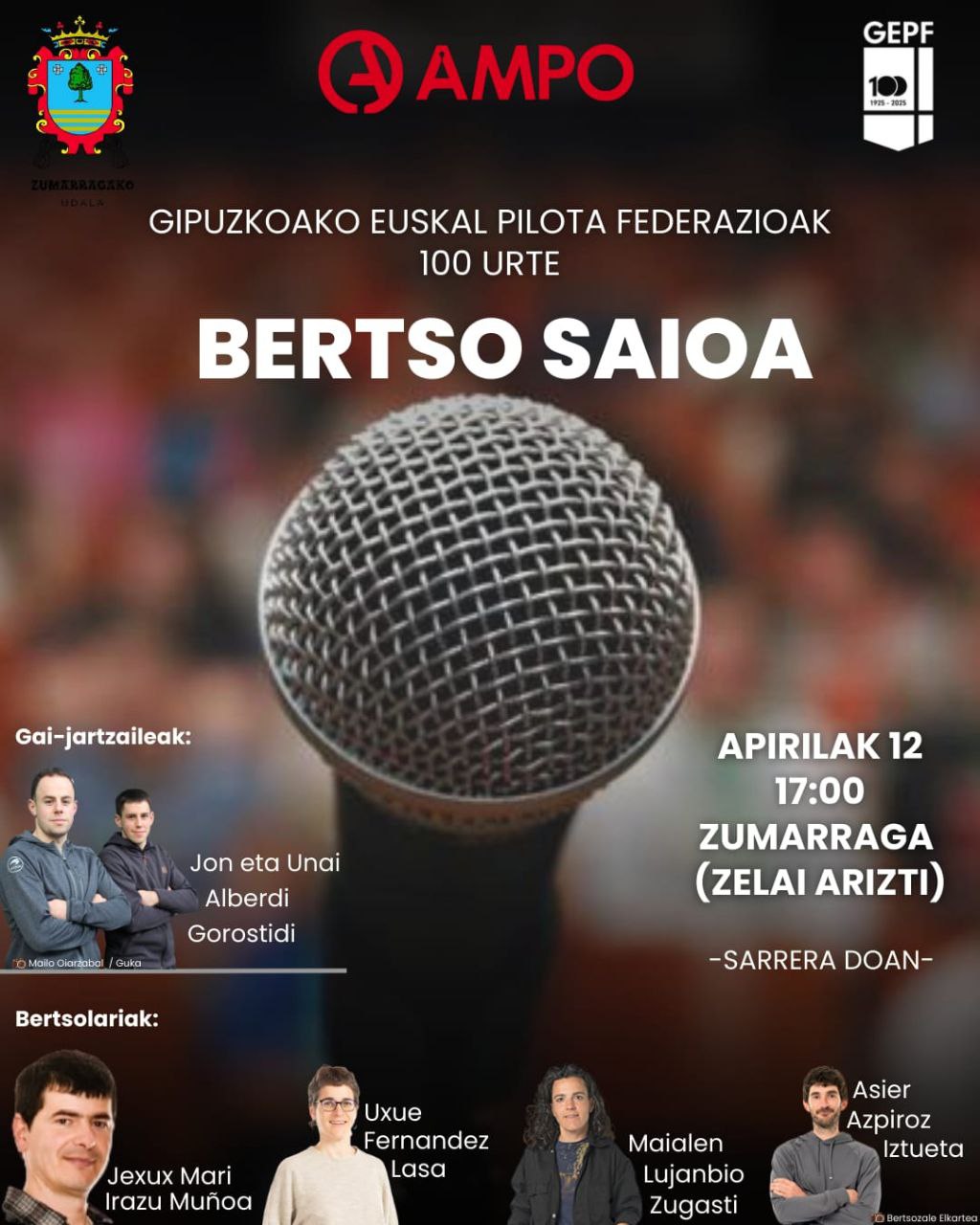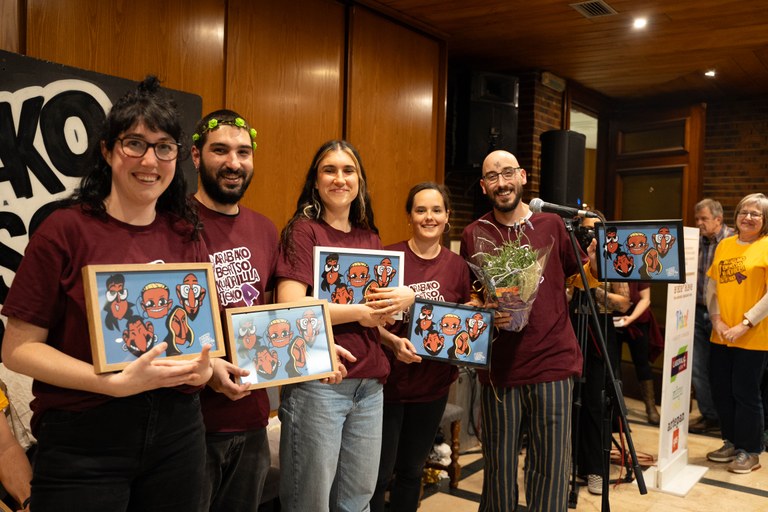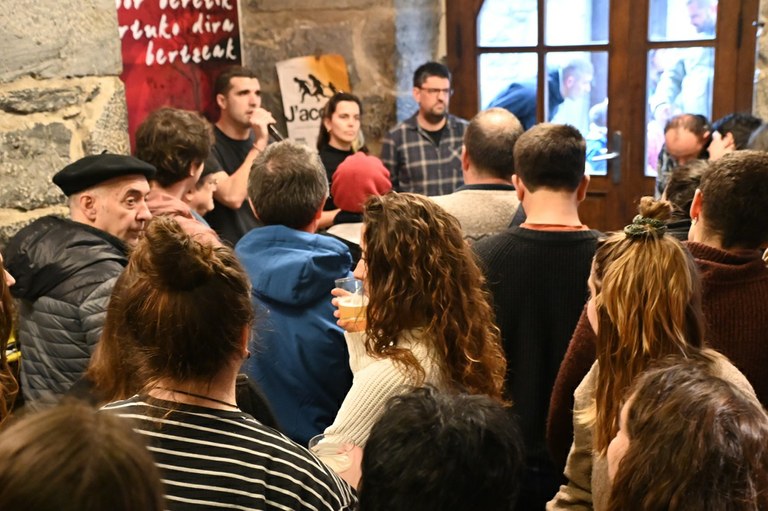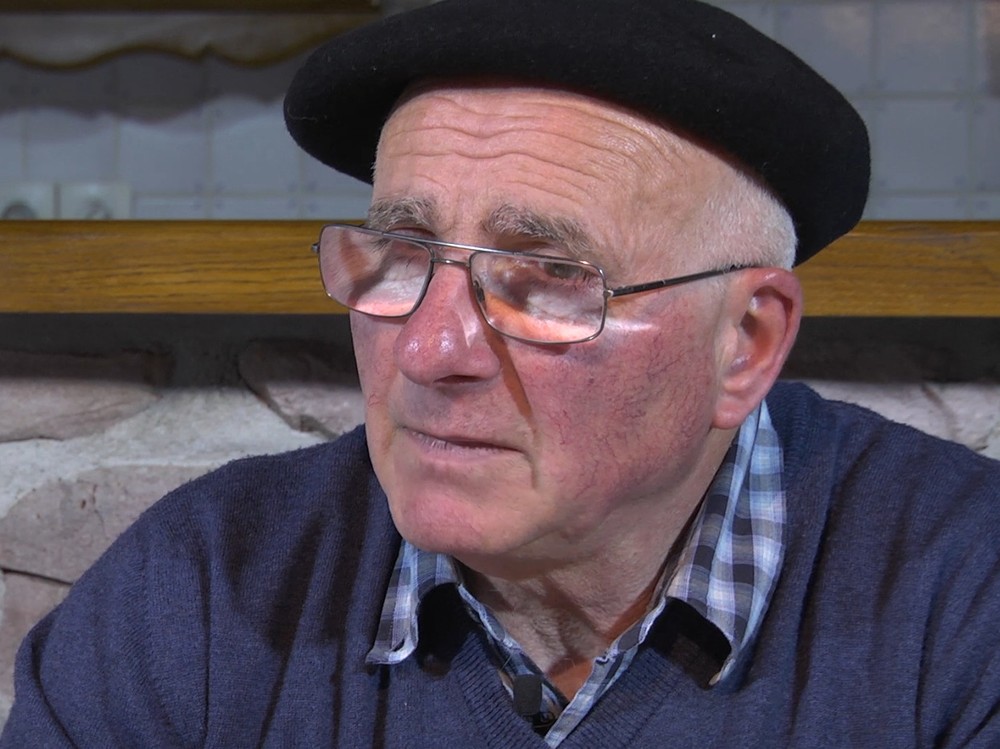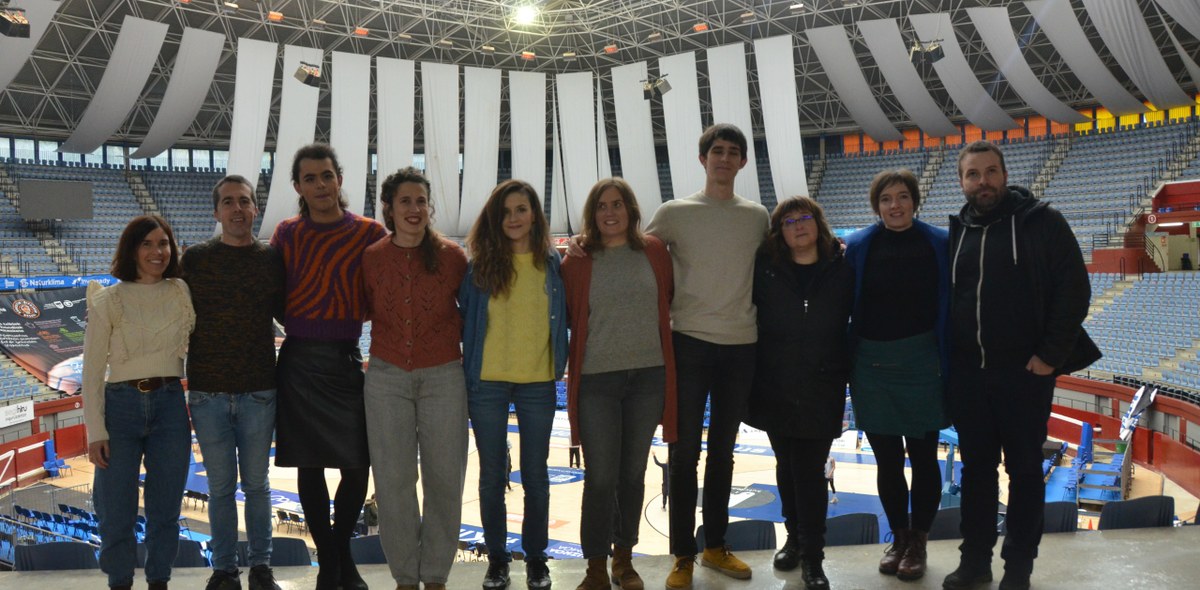"By 20 years, repentism is going to flourish enormously, we've already begun to notice the signs."
- Alexis Díaz Pepper (Havana, 1966) is one of the great drivers of Cuban improvisation, repentism. In addition to improviser, he is also an agent, as he has created repentism schools for boys and girls throughout the island. As he lives between Cuba and Spain, he has also worked in Andalusia and Murcia promoting his traditions. In addition, he has brought repentism to university: He is director of the Experimental Chair of Improvised Poetry and deputy director of the Ibero-American Center of the Decima and the Improvised Bertso. He also writes dexterously, has published poems, stories, novels and essays.
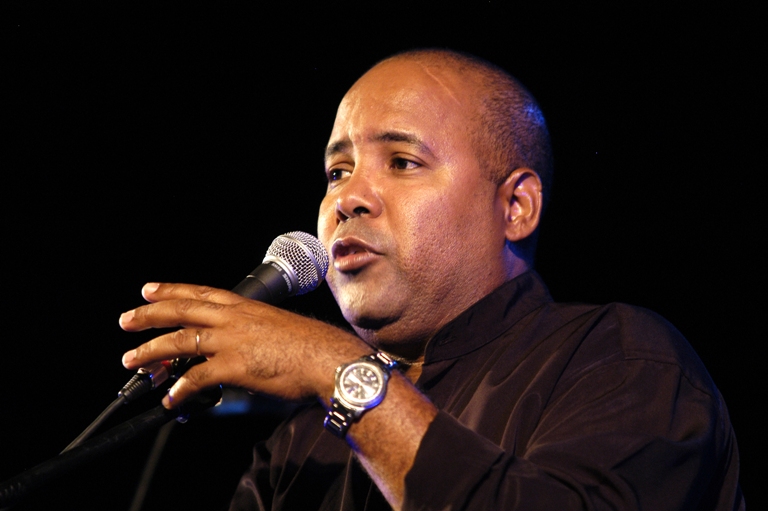
At the Hika Ateneo in Bilbao in November 2017, Alexis Díaz Pepper attended the World Congress of Improvisation. Bertsolari Oihana Bartra was the singer. Díaz pepper, who knows first-hand Bertsolarism, has underlined the relationship between the traditions of Cuba and Euskal Herria, even though they are of different origin.
How did you know Bertsolarism?
I met him more than twenty years ago and I have been lucky enough to improvise with the best bertsolaris: Andoni Egaña, Jon Sarasua In addition, I am encouraged to be on stage with the Bertsolaris women. In fact, the re-criminality carried out by women in almost all cultures remains deficient, and I was very pleased that in 2009 Maialen Lujanbio won the Bertsolaris Championship. That same year, a female trovator from Medellín (Colombia) won the competition for the first time and in Cuba we also won a woman. It was a historic moment.
What is the difference between the improvisations of Euskal Herria and Cuba?
In Cuba improvisation is closely linked to poetry. Creating metaphors, creating images -- it's an important goal of the improviser. But the competition also has room, that is, the conversations between the singers.
.jpg)
What would you bring from Cuba to Bertsolarism?
Each tradition has its essence. Bertsolarism contributes a lot to the concert of the improvising voices of the world. Maybe when you hear other styles from the outside, you see the void of our scenic joy or our festive vocation, but I don't think that's a shortage, it's that Bertsolarism doesn't have that quality simply. In Bertsolaris, I see the public laughing, it carries within this festive atmosphere, behind this apparent seriousness. The speech creates great complicity between the public and the bertsolaris. It's not very rich in gestures, but it's also rich, because it explores other communication pathways.
In many improvisations in the world the instruments help the word, but in the Basque Country they do not. You have also chanted capella in the Hika Athenaeum program.
“Bertsolarism doesn’t need music. Only great musicians appreciate the musical value of silence”
Bertsolarism doesn't need music. In my books I often mention “the music of silence,” only great musicians value the musical value of silence. This stage aridity makes Bertsolarism special in the face of other improvisations.
Is the health of repentism in Cuba good?
He's healthier than ever before. At the University of Havana, I created the Chair of Repentism, and later, I drove the national project of repentism workshops. It's over 70 schools. Since then, 17 years have passed and I am happy because what started then has continued until today, and there are more and more children and young people. More and more girls, I've always made a special effort on it.
Therefore, there are young people who will take your witness.
Ours is a generation of transition. We met the classics and it's up to us to make yours. I believe that in 20 years' time repentism will have an extraordinary splendor, now we have also begun to notice the signs of it, in Cuba it is a strong cultural phenomenon.
In Euskal Herria, Bertsolarism has taken the leap from the rural world to the urban environment. Has it been something like Cuba?
In Cuba exactly the same. I too am on the street, I do not know how to plant potatoes! I'm seeing in my children and grandchildren how a kind of neo-repentism begins to appear in Cuba, it's a more urban improvisation, with other objectives, aesthetics and characteristics, far from rural references. This phenomenon is occurring in many places, not only in Euskal Herria and Cuba, but also in Puerto Rico, Panama or Argentina.
.jpg)
You've taken improvisation to college. Has that also boosted repentism?
“Academics must realize once and for all the importance of this type of cultural expressions, which look at them without prejudice”
Academics need to realize the importance of these kinds of cultural expressions to look at them without prejudice. If we make a space in the faculties of knowledge and with it we influence a guest, I agree. Because we're completely internalized in the culture of writing, we don't realize that orality is the essence, the mother of all cultures, the uterus. Bertsolarism or repentism does not need the prestige given by academics, but academics themselves are prestigious when they approach us.
You also have in motion the poetic musical project Los Pepper, how is it?
It's my closest project, because it's family. Your wife, your children, your nephews and your sisters are with me. Our goal is to bring Cuban repentism to the stage, combining it with theatre, written poetry and music. It is another way to approach repentism, from within the family to the avant-garde scenic projection.
In this desire for fusion and experimentation, Cuba and the Basque Country seem to go along the same path.
“Repentism and bertsolarism are the vanguards of traditional oral improvisation. They are no better than others, but it is essential to adapt tradition to the twenty-first century”
Cuban repentism and bertsolarism in the Basque Country are the vanguards of traditional oral improvisation in the twenty-first century. I would say that they go ahead of the rest, because they have had a specific development that other traditions lack. They are no better than others, but the adaptation of tradition to the twenty-first century is essential to reach new audiences and open doors. They have been in Bertsolaris for years and we have been in Cuban repentism.
We have learned a lot from the Basques, and the Basques of the Cubans. As I have been told, the idea of giving Bertsolarism on television was taken from Cuba, we have a programme on repentism which has been broadcasting uninterruptedly for 60 years. Repentism has had a lot to do with television.
With radio and, in the 1990s, Egaña, Sarasua, Joxerra Garzia, etc., saw this potentiality. On the other hand, the schools of repentism promoted by me in Cuba were born after knowing the experience of Euskal Herria. There is interaction between the two peoples.
Maiatzaren 8an hasiko da Bizkaiko Bertsolari Txapelketako sailkapen fasea. Zortzi saio bikoitz jokatuko dira maiatzeko eguenetan. Sarrerak eskuragai daude bertsosarrerak.eus atarian.
Asteburu honetan hasiko da Gaztetxeak Bertsotan egitasmo berria, Itsasun, eta zazpi kanporaketa izango ditu Euskal Herriko ondorengo hauetan: Hernanin, Mutrikun, Altsasun, Bilboko 7katun eta Gasteizen. Iragartzeko dago oraindik finala. Sariketa berezia izango da: 24 gaztez... [+]
Vagina Shadow(iko)
Group: The Mud Flowers.
The actors: Araitz Katarain, Janire Arrizabalaga and Izaro Bilbao.
Directed by: by Iraitz Lizarraga.
When: February 2nd.
In which: In the Usurbil Fire Room.










